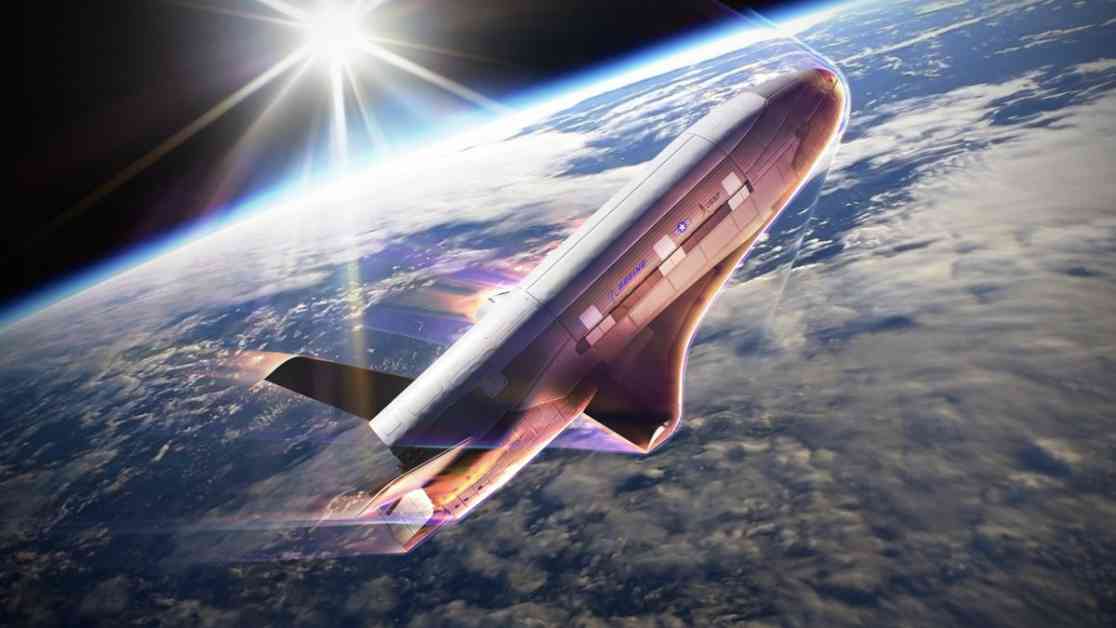The X-37B, a secretive space plane operated by the U.S. Space Force, is set to perform a unique maneuver known as “aerobraking” during its descent back to Earth. This maneuver involves controlled descents into Earth’s atmosphere, allowing the spacecraft to change its orbit rapidly and unpredictably without using excessive fuel. This innovative approach demonstrates the Space Force’s commitment to groundbreaking innovation in conducting national security missions in space.
The X-37B, designed by Boeing for undisclosed purposes in service of the U.S. Department of Defense (DOD), has been involved in various classified missions. Past missions have included testing the effects of solar radiation on seeds and possibly evaluating new military surveillance technology. The upcoming aerobraking tests will enable the spacecraft to alter its orbit in a way that could temporarily evade detection by other nations, enhancing its strategic capabilities.
The current mission, known as OTV-7, began in December 2023 and involves operating the reusable spaceplane in new orbital regimes. The spacecraft, measuring approximately 29 feet in length and resembling a miniature space shuttle, can orbit at varying distances from Earth, from a few hundred to thousands of miles. It is remotely controlled and equipped with solar panels for recharging its batteries, allowing it to remain in space for extended periods.
In addition to its operational capabilities, the X-37B is designed to minimize space debris by ejecting its service module before landing, in accordance with international standards. This practice helps prevent the accumulation of debris in Earth’s orbit, addressing concerns about space sustainability. The spacecraft’s long-duration missions and experimental objectives, such as investigating radiation effects on materials and testing space domain awareness technologies, contribute to advancing space exploration and security.
The X-37B’s unique features and mission objectives highlight the intersection of technology and environmental sustainability in the aerospace industry. As the spacecraft continues to push the boundaries of military technology and space innovation, it underscores the importance of responsible space practices and the need for ongoing research and development in this critical domain.
Rory Bathgate, a freelance writer and Features and Multimedia Editor, brings a keen interest in how technology intersects with climate change mitigation. His focus on renewable energy, electric vehicles, and the energy transition reflects a growing awareness of environmental challenges and the role of technology in addressing them. Through his work, Rory emphasizes the importance of sustainable practices and innovation in shaping a more sustainable future for our planet.










